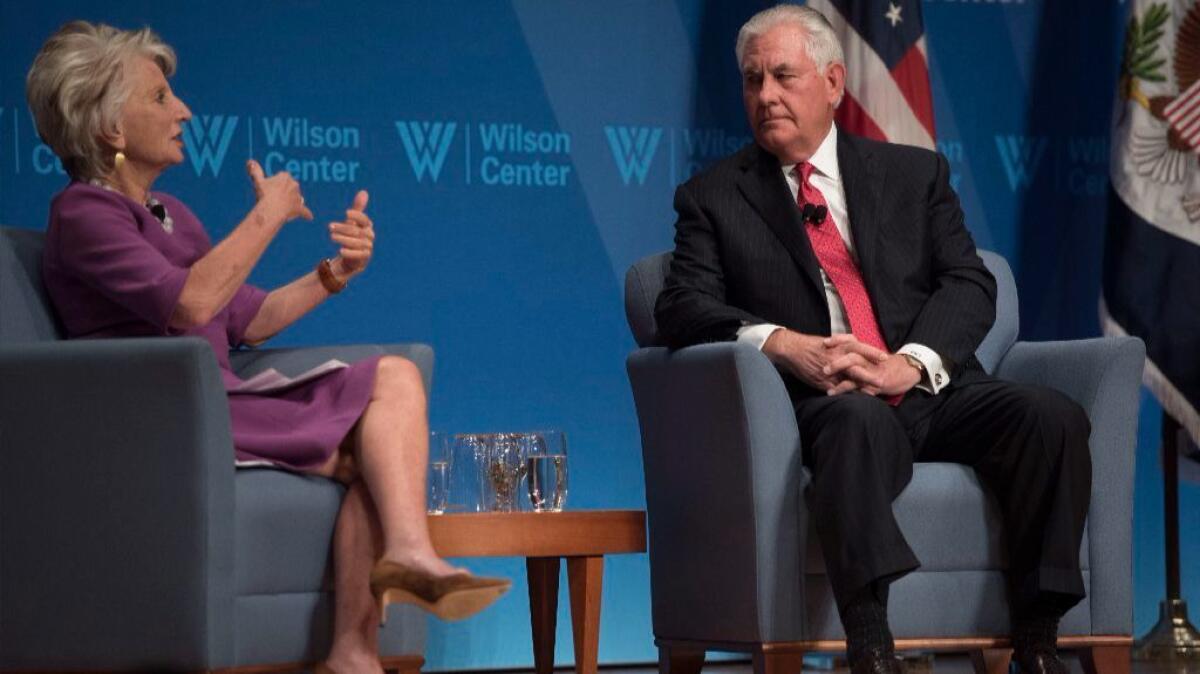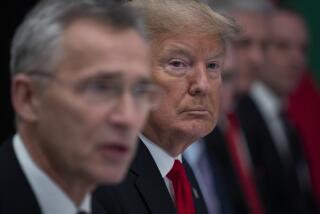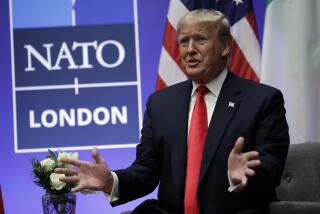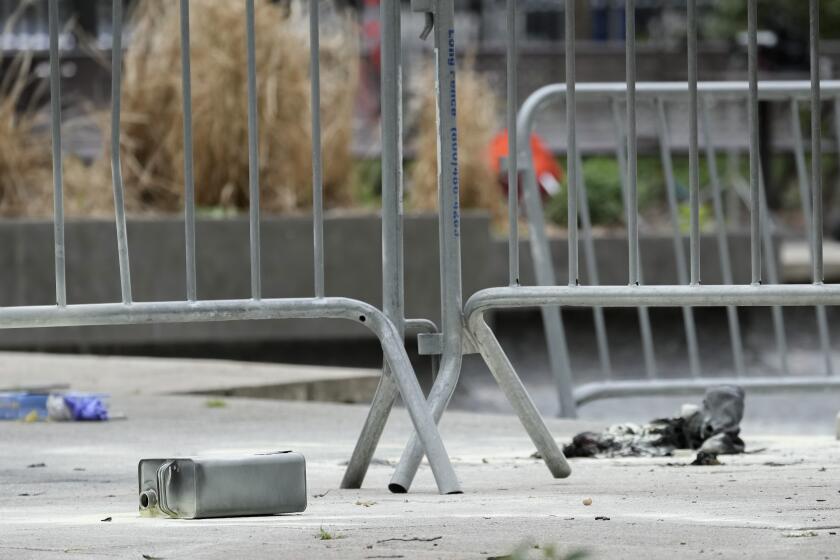In unusual criticism, Tillerson slams Russia’s ‘malicious tactics’ ahead of trip to Europe

In some of the toughest criticism of Russia to come out of the Trump administration, Secretary of State Rex Tillerson slammed Moscow on Tuesday for what he called a campaign of force, intimidation and subterfuge in an attempt to overpower neighbors and reassert a position of dominance on the world stage.
Tillerson said the United States and its European allies would like to have better relations with Russia, but that its behavior under President Vladimir Putin made that impossible, citing Moscow’s 2014 “invasion of the largest country in Europe,” Ukraine.
“We will not stand for this violation of international norms,” Tillerson said. He said he has told Moscow that until it withdraws its forces from neighboring Ukraine, relations with Washington will never be normal.
Tillerson’s comments at the nonpartisan Wilson Center think tank in Washington in some ways confirmed the obvious — that President Trump’s repeated calls for warmer relations with Moscow, and his unstinting praise for Putin, have failed to produce tangible results.
Most members of Congress remain highly skeptical of Russian intentions, and the White House remains mired in the special counsel investigation of whether the Trump presidential campaign actively assisted Russian efforts to interfere in the 2016 election. Trump has called those allegations a hoax.
In his speech, Tillerson addressed U.S. relations with Europe ahead of his visit next week to several European cities to meet with North Atlantic Treaty Organization allies. His comments seemed aimed in part at reassuring them about Trump’s continued commitment to security on the continent, especially in the face of what they see as Russian aggression in Ukraine and elsewhere.
“Russia has shown it seeks to define a new post-Soviet global balance of power,” Tillerson said.
He said Moscow, “by virtue of its nuclear arsenal, seeks to impose its will on others by force,” or by partnering with military regimes that have brutalized their citizens, like the Syrian government of President Bashar Assad.
Tillerson cited a long list of “malicious tactics” employed by Russia, from using disinformation campaigns and cyber-attacks to undermine U.S. and European democracies, to the “serial” harassing of diplomatic personnel, including U.S. Embassy employees in Moscow.
“Russia can continue to isolate and impoverish itself by sowing disorder abroad and impeding liberty at home, or it can become a force that will advance the freedom of Russians and the stability of Eurasia,” Tillerson said.
He also pushed back on published reports, including in the Los Angeles Times, that his management of the State Department has led to an exodus of scores of senior foreign service officers, a decline in morale and a weakening of U.S. diplomatic muscle.
“There is no hollowing out,” he said, insisting that staffing remains more or less in line with last year and that the administration’s proposed 30% budget cut for the State Department would pare spending back to historic levels.
“I’m offended on [staffers’] behalf when people say somehow we don’t have a State Department that functions,” he said. “I can tell you it’s functioning very well from my perspective.”
In the latest criticism of Tillerson’s performance, two former senior State Department officials, Nicholas Burns and Ryan Crocker, said Tuesday that the loss of so many veteran diplomats was putting the United States in peril.
“We are witnessing the most significant departure of diplomatic talent in generations,” Burns, former U.S. ambassador to NATO, and Crocker, former U.S. ambassador to Iraq and Afghanistan, wrote in an op-ed in the New York Times.
For more on international affairs, follow @TracyKWilkinson on Twitter
More to Read
Start your day right
Sign up for Essential California for news, features and recommendations from the L.A. Times and beyond in your inbox six days a week.
You may occasionally receive promotional content from the Los Angeles Times.







